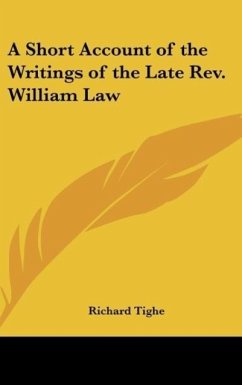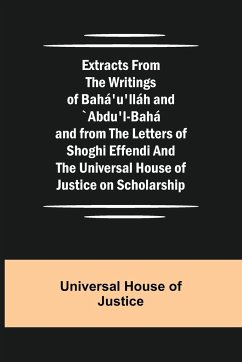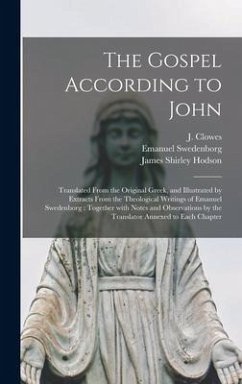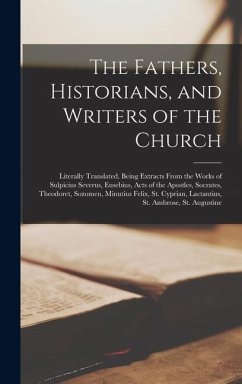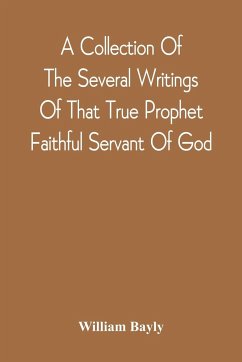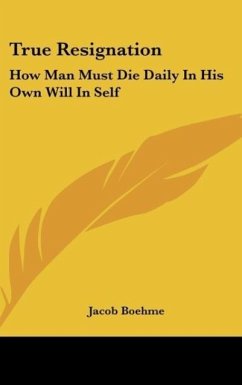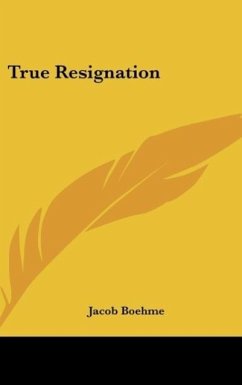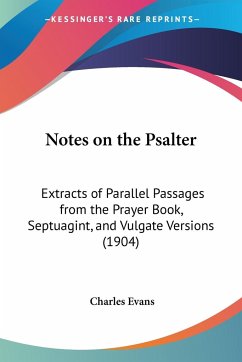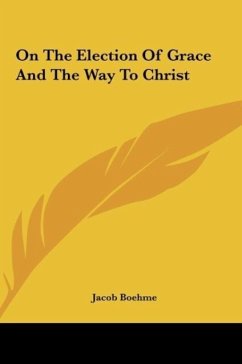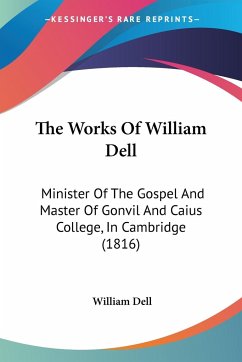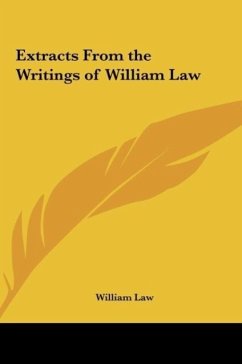
Extracts From the Writings of William Law

PAYBACK Punkte
13 °P sammeln!
William Law was a kind and gentle soul who clearly perceived the mystic oneness of all existences. His writings should be read by any mystic. "What is a good Book? A good Religious Book is one full of such truths and Spiritual information will lead us to see and know who, and what and where we are; that God is our All, and that all is misery but a heart and life devoted to him. The best Book is undeniably that which will turn to us that inward one, which, with noon day clearness, shows us the strength of sin, the power of every evil temper, the secret workings of our hearts, the weakness of al...
William Law was a kind and gentle soul who clearly perceived the mystic oneness of all existences. His writings should be read by any mystic. "What is a good Book? A good Religious Book is one full of such truths and Spiritual information will lead us to see and know who, and what and where we are; that God is our All, and that all is misery but a heart and life devoted to him. The best Book is undeniably that which will turn to us that inward one, which, with noon day clearness, shows us the strength of sin, the power of every evil temper, the secret workings of our hearts, the weakness of all our virtues; and to the Teacher, whose instructions consist in an inward birth of Divine Light and Goodness.



